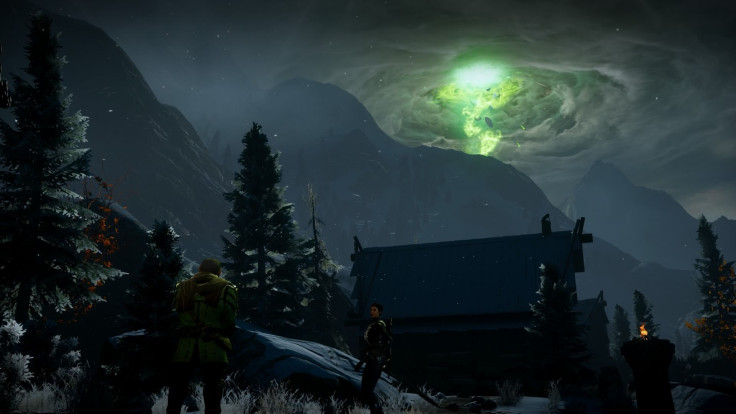Dragon Age: Inquisition hasn't earned the right to be called perfect, given the bugs plaguing some users and balance issues during the game’s later moments, but it's hard to imagine even the most-casual RPG fan not loving some portion of the Dragon Age: Inquisition experience.
Dragon Age: Inquisition is easily the best-looking game to hit the PlayStation 4 or Xbox One this year. Not that it had all that much competition. And, making exceptions only for the handful of MMOs currently available on next-gen platforms, Inquisition can also lay claim to having the longest campaign of any 2014 release.
Best of all, instead of relying on the same tired filler content that regularly pads a game's 100 percent completion time -- without necessarily adding any real entertainment to the title in question -- Bioware finds ways to just about all of Inquisition's side-content into the primary narrative.
Those expecting real longevity after the Inquisition campaign wraps will be thrilled to know that the cooperative multiplayer from Mass Effect 3 has been adapted to fit the setting and gameplay of the Dragon Age franchise. The game does not push the roleplaying genre forward in any significant way but instead relies on a collection of newly-perfected mechanics and tropes from recent hits. And it works.
In fact, I'd go as far as to say that Dragon Age: Inquisition is the most-impressive (nearly) open-world to hit the gaming industry since the 2012 debut of The Elder Scrolls V; a feat made all the more impressive by the fact that Dragon Age doesn't feel like an outright Skyrim clone.
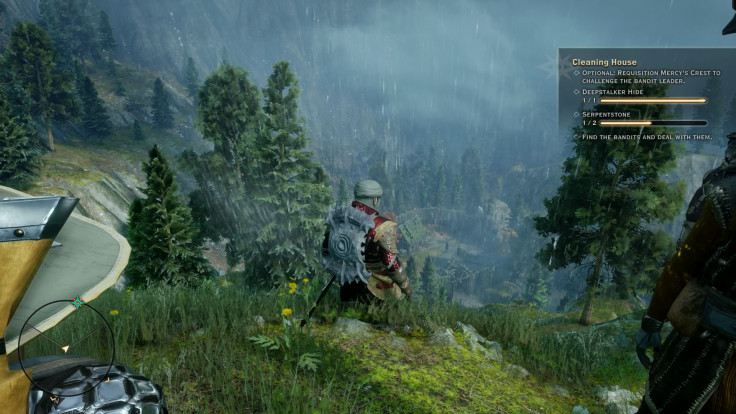
In Dragon Age: Inquisition, players assume the role of the Inquisitor, a being who mysteriously appears in the ruins of an explosion that claimed the lives of dozens of mages and templars. Given that both armies had only just been convinced to stand together at a negotiator's table, few are pleased to see your character emerge from the same ruins where so many others died.
As you might expect, given that you appear to have just bombed your way into the middle of an existing war, the sudden appearance of your Inquisitor doesn't sit well with those who've just lost their most-respected leaders.
As if that weren't bad enough, the explosion has opened a new breach in the Veil, giving all manner of demons the ability to torment residents of Thedas and the various people you'll encounter during the Dragon Age: Inquisition campaign.
Thankfully, there are a few friendly faces in the crowd, and it isn't long before you're standing at the front of the newly-formed Inquisition. Of course, your new job also comes with the responsibility of closing up the giant hole that's opened in the skies over Thedas, but we'll get to that a bit later.
In the beginning, your title doesn't mean much. In fact, being Inquisitor doesn't really get you much of anything other than the respect of the three people who form your starting party. Like any fledgling organization, you must work with/for the communities where you're hoping to expand operations and it'll take time for the Inquisition to make inroads with many of the established factions that you'll encounter during the Dragon Age: Inquisition campaign.
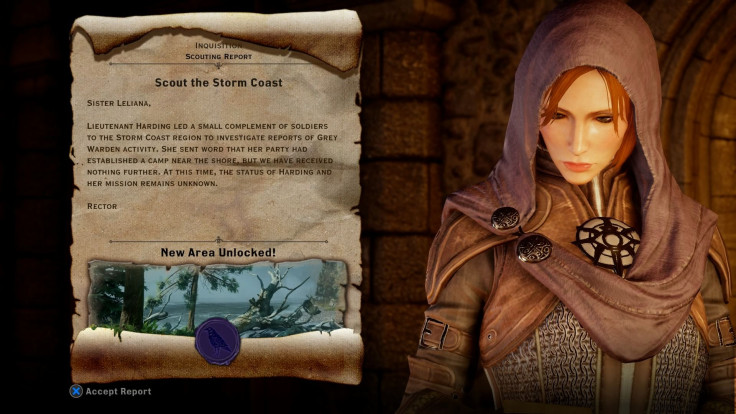
In fact, during the first dozen or so hours the story, it feels like damn near everyone currently living in Thedas is lining up to join the "No Faith In The Inquisition" club. Of course, like any Bioware game, Dragon Age gives players the freedom to decide how your Inquisitor responds to this early reticence, along with all the "big picture" decisions facing the Inquisition.
As time goes on, Inquisition gives players the opportunity to recruit new party members, earn the favor of local governments, try your hand at playing kingmaker and a host of other activities likely to please anyone with an affinity for Bioware RPGs and an ongoing "Scandal" and/or "House of Cards" addiction. Those just hoping to hop from one fight to the next aren't likely to enjoy Bioware's latest masterpiece. But any lore-loving RPG fan willing to invest a few dozen hours in Inquisition, and do all the necessary reading, should be able to find something to relate to in Thedas.
It's impossible to make progress in Dragon Age: Inquisition without wading at least knee-deep into the region's cornucopia of political scandals, faction wars and other assorted dangers. Naturally, each situation comes with a healthy helping of conversation, even in those situations where everyone involved knows it's only a matter of time before the swords come out.
What sets Inquisition apart is the fact that your actions actually seem to have some impact on the people and places you'll encounter on your journey. You won't be moving mountains or building your own castles, but the Inquisitor can order the restoration of fallen bridges or clearing of blocked passages.
Dragon Age: Inquisition even lets you lead your party into massive keeps, ancient forts/fortresses from old kingdoms and nations, and you'll see members of the Inquisition step in to inhabit each area once it's been cleared of hostile inhabitants. Similarly, establishing Inquisition camps in each zone helps emphasize the narrative that players are leading a nation-spanning organization whose influence can be felt farther and farther from home as time goes on.
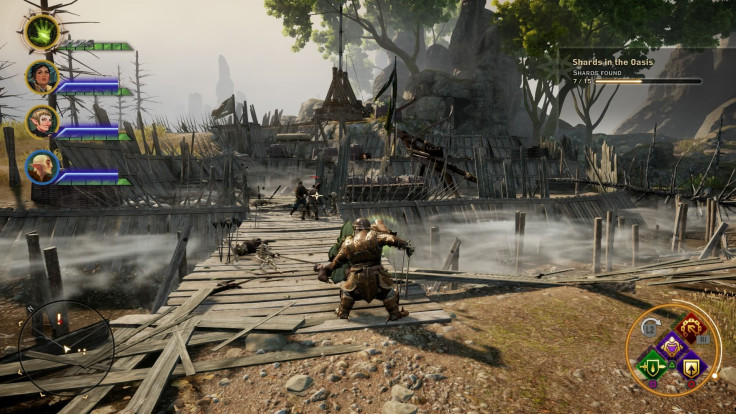
Including the Inquisition camps also allows Bioware to make easy use of the outpost mechanic -- traveling from one checkpoint to the next in order to remove fog-of-war from your in-game map -- present in most modern open-world video games. I was pleased to find that the Bioware's outpost implementation wasn't the only sensible take on a standard open-world trope to be found in the Dragon Age: Inquisition campaign.
Likewise, nothing made me happier than learning Bioware had not only included a semi-plausible explanation for collecting the dozens of shards scattered throughout Thedas; instead, choosing to offer players a number of rewards for tracking down the items. Everything from new loot to stat bonuses can be acquired by finding shards and returning to the discoverable locale where they're put to use.
It's not enough to get you to level 20, or prepare you for some of Dragon Age: Inquisition's toughest fights, but I can't be the only person thrilled to see a game reward collectable-hunters with more than trophies/achievements.
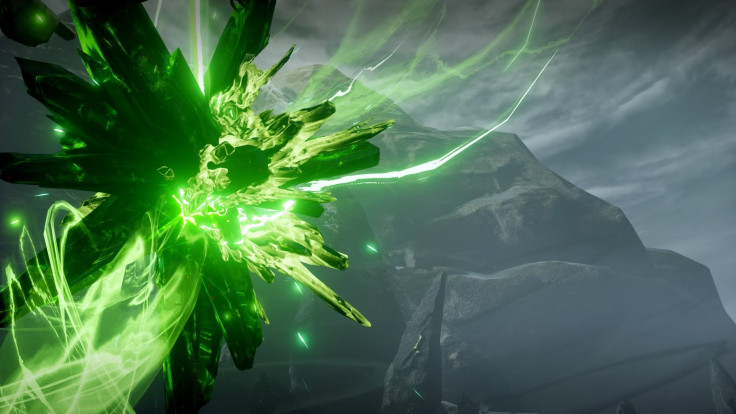
Similarly, your interactions with the various inhabitants of Thedas will both alter your path to the "finish line" in Inquisition and give you a chance to see just how deeply players can dig into the world and lore of Dragon Age. Just as many cities and nations bring their problems to the Inquisition, individual residents of the towns and regions you visit will approach the Inquisitor and his party, hoping to secure help with one or more tasks.
Players are almost always given the freedom to say no, and can occasionally try to procure payment for whatever services they've provided, but the real fun comes from seeing how your actions affect the lives of the person(s) in question. Local quests also provide an excellent opportunity for familiarizing yourself with a given region, particularly if you've just unlocked the locale, and can also help flesh out the world and lore of Dragon Age if you're new to the series or just need a refresher.
Speaking of new players, those who haven't played either of the previous Dragon Age games before will be delighted to know that background knowledge of the series isn't remotely necessary to enjoy the content present in Dragon Age: Inquisition. I had zero experience with the franchise and yet playing it remains one of the most enjoyable uses of my time that I've found all year. Gaming-related or otherwise.
After doing a bit of post-game research, I also discovered that Bioware has absolutely crammed the game full of cameos and references to Dragon Age: Origins and Dragon Age 2. Longtime Dragon Age fans will see plenty of familiar faces and anyone who can recount the decisions they made in previous games can use the Dragon Age Keep to ensure the current state of Thedas reflects previous decisions.
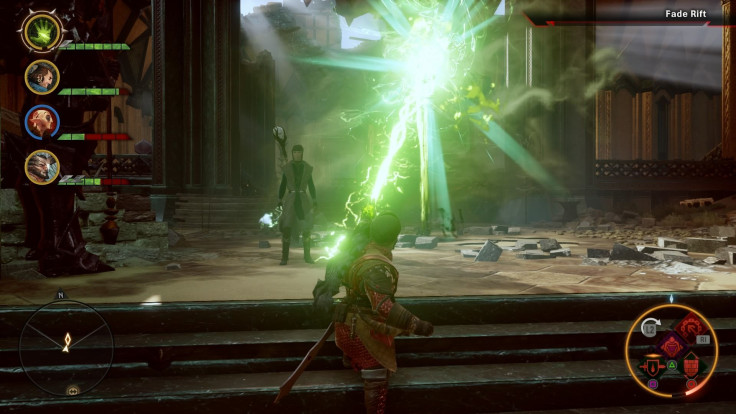
As someone who never finished the Mass Effect trilogy, I've long been semi-bummed about the fact that I'm unlikely to get a chance to experience what has to have been one of the most universally-praised cooperative multiplayer experiences of the last console generation. At least, that's what I'd always assumed before the debut of Dragon Age: Inquisition, which more-or-less preservers Citadel mode in all its glory.
Sure, the sci-fi trappings of the former have been stripped away to make room for the high fantasy leanings of the latter, but anyone who spent more than 20 minutes with Mass Effect 3 will immediately be familiar with multiplayer action in Dragon Age: Inquisition. It may not feed back into the primary campaign, the way that Mass Effect's multiplayer aided players in Galaxy At War, but the ability to earn new gear and abilities for more than a dozen different character still provides the necessary incentive to keep the Inquisition community coming back for more.
In many ways, the slightly revamped multiplayer offering feels as much like Bioware's take on the dungeons/strikes/instances found in massively-multiplayer RPGs. Granted, Dragon Age players don't have nearly as much freedom over the build of their characters, instead being forced to choose between 2 heavily-altered talent trees instead of the 3 typical to MMOs.
But I found it impossible to shake the feeling, especially on occasions when my teammates actually took advantage of the in-game voice chat or when it's time to sift through loot after each mission. Even the ability to hoard gold, which can later be spent on treasure chests full of new gear, potions and upgrades, almost makes Inquisition's multiplayer more like its own progression-based RPG than the multiplayer add-on for the already popular Dragon Age franchise.
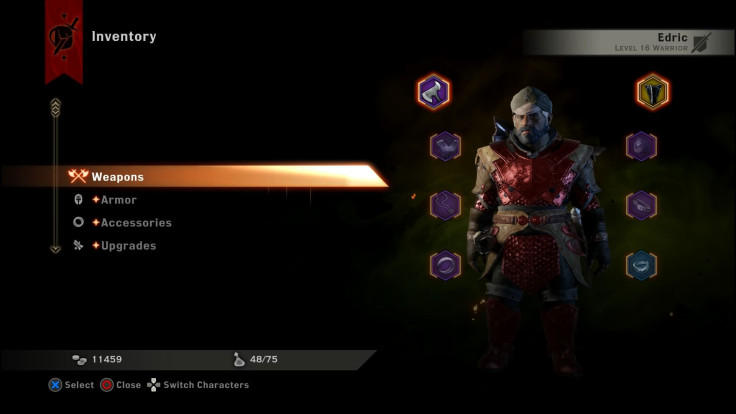
Unfortunately, Dragon Age: Inquisition isn't without its shortcomings. While many of my complaints about the experience feel a bit nitpicky, there are some design decisions that I think Bioware could have tweaked a bit more before releasing Inquisition. Most would probably agree that the last two or three dozen hours of the campaign could've used a bit more polish, too.
To be fair, I played Dragon Age: Inquisition for more than 50 hours before encountering my first conversation bug, and rarely did I encounter anything that seriously affected my current Inquisition play session in any meaningful way.
Occasionally, I'd have to wait 10-15 seconds for the dialogue wheel to appear, and I have a character fall through the world once or twice. But neither scenario even forced me to reload the game, and these particular events delayed my progress by less than a minute. Combined.
I was also disappointed by how frequently Dragon Age: Inquisition forces you to return to Inquisition headquarters, tying everything from weapon crafting to war council directives to the ancient estate that your army calls home. It would have been nice to see Bioware give Inquisition players more options for inventory management, especially while out in "the field", and some method of war council interaction on the road would have been greatly appreciated, too.
They may seem like minor gripes but conversation bugs and inconvenient trips back to base weren't the only noticeable issues in Dragon Age: Inquisition, either.
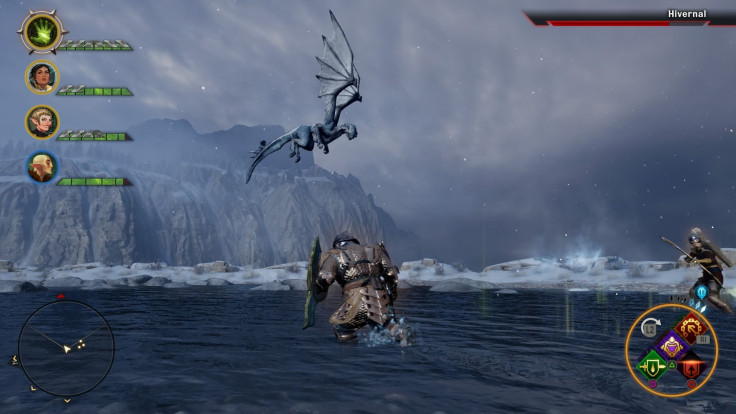
While they remain a high point of the Dragon Age experience, battling the various wyrms that can be found across Thedas proved a bit more repetitive than I was hoping for. With a couple of exceptions, most notably the Fereldan Frostback encounter that was heavily publicized pre-launch, Inquisition players will find that the vast majority of dragons rely on the same attack patterns and tactics.
The only real change is the type of damage being dealt by your foe and a quick equipment swap will nullify even this relatively minor difference.
Bioware certainly did an amazing job of polishing and fine-tuning the RPG mechanics we've become familiar with in recent years but I'm disappointed by the fact that Dragon Age: Inquisition fails to move the genre forward in any meaningful way. There's nothing in Inquisition on-par with the widely-lauded Nemesis system that debuted in Middle-earth: Shadow of Mordor earlier this year, and even the game's multiplayer component is a rehash from another Bioware project.
In many ways, Dragon Age: Inquisition is the definition of excellence but I can't be the only one who thinks it would've been nice for some of that standout material to feel a bit less familiar.

Dragon Age: Inquisition Review - Final Verdict
Dragon Age: Inquisition may not be perfect but it was definitely the perfect way to close out what has to be one of the most-stressful years in the history of the industry.
There's loads to love in the game's campaign, enough enjoyable side-content for pursuit of Inquisition's Platinum trophy (or 1000G) to actually be enticing and those with a decent gaming rig or next-gen console will get to play one of the best-looking games of 2014.
After more than 70 hours in Thedas, I'm still looking for an opportunity to squeeze in a few more minutes with Dragon Age, and I don't suspect that's going to change any time in the near future. In fact, I'm already considering possible builds for a second playthrough; though I may hold off until after I've had a chance to go back and play the first two games in the series. I'm curious to see how much the Inquisitor's journey will change with a custom world and different decisions in a few key places.
Like just about anything in life, those looking to nitpick could easily find a couple of things to complain about but it would be an uphill battle (to say the least) if you were trying to convince me that Dragon Age: Inquisition wasn't one of the most detailed and polished gaming experiences of 2014.
If being forced to read in a video game feels like a chore to you, or you're somehow incapable of dealing with complex universes, Inquisition probably isn't going to change your current opinions about the folks at Bioware or the Dragon Age series.
But if you've ever loved one of the conversation-heavy, D20-meets-action-RPG masterpieces from the folks at Bioware, or any stat- and strategy-focused RPG for that matter, there's little reason not to assume you'll fall in love with Dragon Age: Inquisition, too.
Score - 5/5
Be sure to check back with iDigitalTimes.com and follow Scott on Twitter for additional Dragon Age: Inquisition coverage throughout the remainder of 2014 and for however long Bioware continues to produce new Dragon Age: Inquisition content in the months to come.
What did you think of Dragon Age: Inquisition? Don't understand why there's been such an uproar about the game in the weeks since launch? Have an idea for a Dragon Age: Inquisition DLC add-on that you'd like to share with the iDigi community?
Let us know in the comments section!

